The activities of the Addiction Symposium... Risks and Solutions at the Faculty of Specific Education
In continuation of the series of awareness seminars for Ain Shams University students, the university’s Faculty of Specific Education hosted the awareness seminar organized by the education sector and students at the university through the General Administration of Youth Welfare, in cooperation with the Council of Ministers’ Addiction Control and Treatment Fund, entitled “Addiction... Risks and Solutions.”
Under the auspices of Pro. Mohamed Diaa Zein El-Abedeen, President of Ain Shams University, Prof. Osama Al-Sayed, Dean of the Faculty of Specific Education, in the presence of Prof. Walaa Anis, Vice Dean of the Faculty for Education and Student Affairs, Dr. Rasha Muhammad Rashad, a researcher at the Fund for Combating Addiction and Abuse Treatment, headed by the Council of Ministers, and a group of faculty members and students at the Faculty.
Prof. Osama Al-Sayed, presented an overview of the history of the Faculty, the Talaat Harb Palace, and the development of the Faculty theatre, which is considered a factory for young art producers who present messages that contribute to building Egyptian society and help direct and guide it.
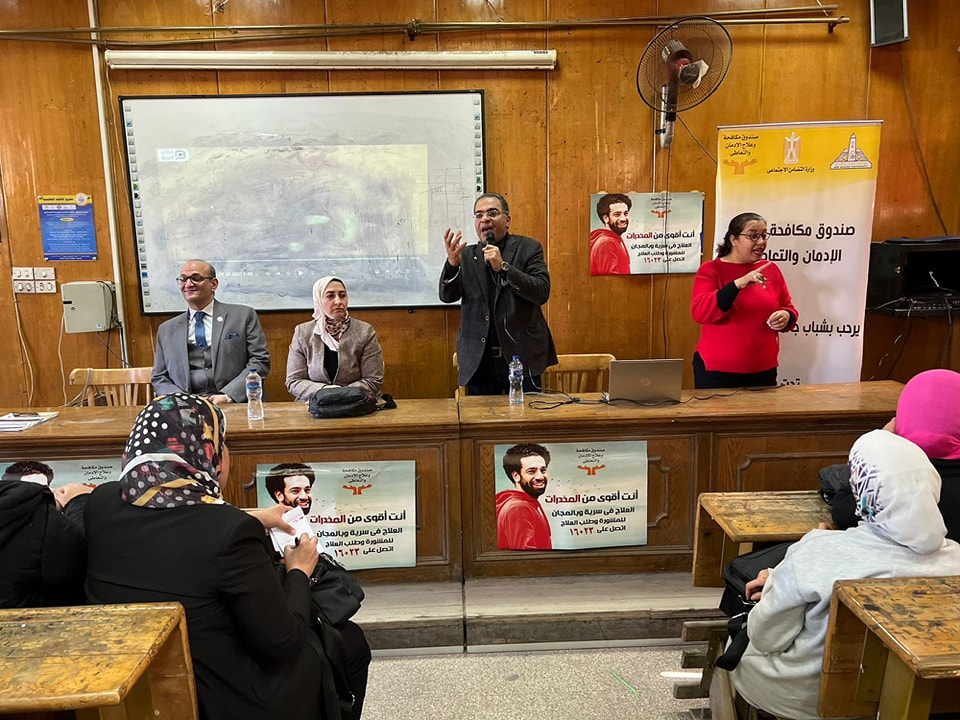 |
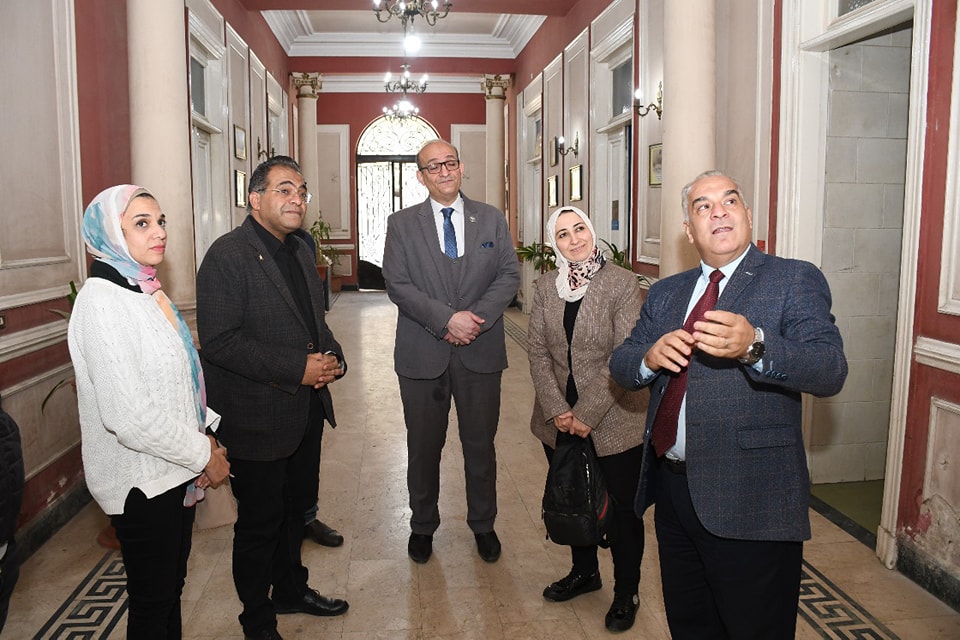 |
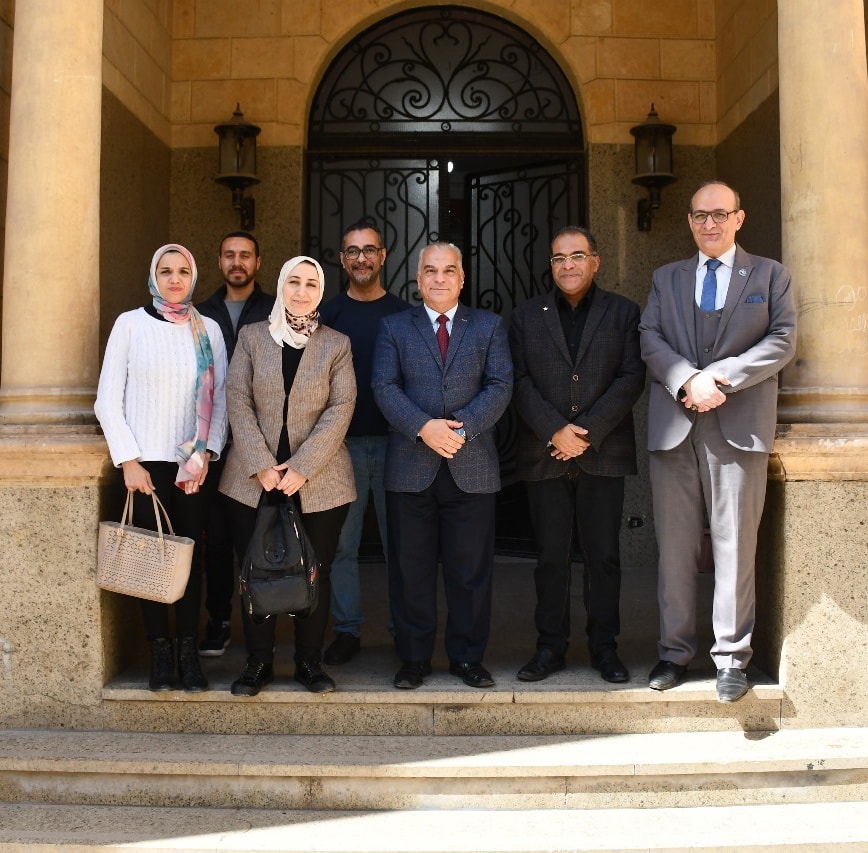 |
||
Prof. Walaa Anis, Vice Dean of the Faculty for Education and Student Affairs, said during his speech that addiction is the scourge that destroys the youth segment, which is the segment entrusted with building societies.
His Excellency also expressed his gratitude for the efforts of the initiative that protects Egyptian youth, which represents Egypt’s precious treasure at the present time.
Dr. Rasha Rashad confirmed that the various initiatives targeting all segments of society, including youth, children and adults, to include the Egyptian street, are among the most important goals of the Fund for Combating and Treating Addiction and Abuse.
Dr. Rasha stressed the importance of the role of the family because it is the first line of defense to protect its children from drugs, and that family dialogue between children and parents, listening to them carefully and encouraging them to express and express opinions helps in understanding the nature of the problem at its beginning. Also encouraging children to practice hobbies and artistic, sports and cultural activities, and urging them to participate in society. It also has a significant impact on their protection, awareness of primary prevention and early detection methods.
Dr. Rasha explained the role of peer pressure in engaging in drug abuse, calling on students not to allow anyone in their surroundings to persuade them or pressure them in any way to try a drug whose source they do not know.
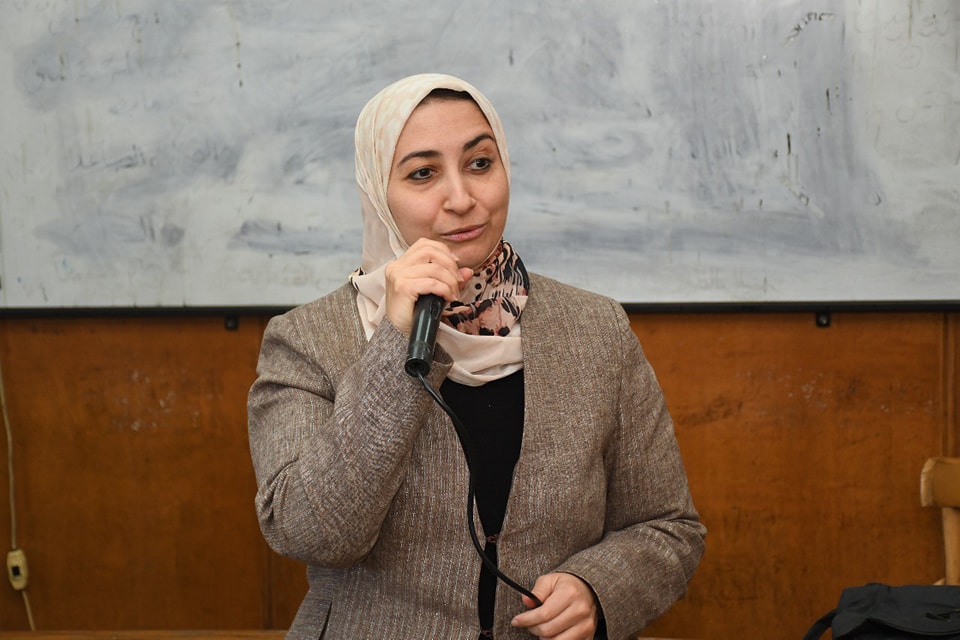 |
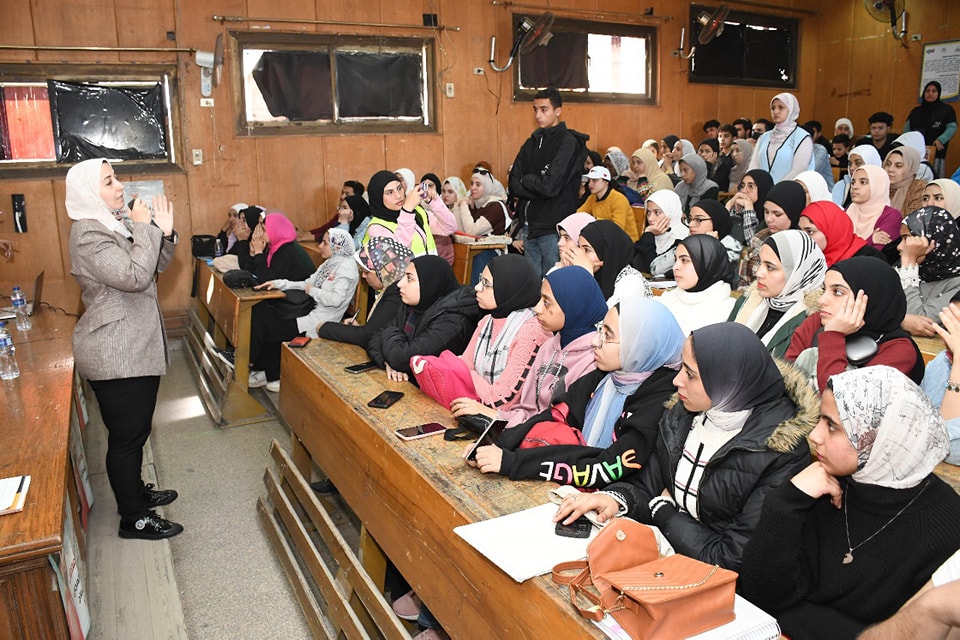 |
She also highlighted the role of the hotline 16023 in helping in early detection of abuse and how to prevent the phenomenon of abuse, treating addiction and social rehabilitation confidentially and free of charge, praising the role of Ain Shams University in conducting awareness campaigns for students within the framework of cooperation between the Fund for Combating and Treating Addiction and Abuse and the university.
Dr. Ahmed Abdel Shafi confirmed that addiction is the basis of most of the violent crimes witnessed by Egyptian society, as drugs affect the human central nervous system and destroy it after a short period.
Dr. Ahmed Abdel Shafi highlighted the types of synthetic drugs and synthetic drugs that have evolved over time to be given resonant names that attract young people and trick them into trying them.
He added that there are digital drugs, which are music with specific frequencies that young people hear via the Internet, which can be accompanied by addiction to actual oral drugs, stressing the importance of students being careful not to experiment with such musical compositions.
He pointed out the danger of the individual's incorrect use of medical drugs as treatments for minor illnesses, such as painkillers, antidepressants, nerve agents, and tranquilizers, and with the large number of these medications, they can become addictive, including synthetic materials that have no medical use and are manufactured in illegal laboratories that are used as narcotic substances such as methamphetamine and manufactured technologies.
He pointed out the harmful effects of these medications on the body, nervous and digestive systems, and the occurrence of infections, stomach ulcers, and kidney failure.
The symposium received a large response from students. It was also translated into sign language for students with disabilities, and a short awareness film entitled “4 in 6” produced by the Anti-Addiction Fund was shown.
At the conclusion of the symposium, the lecturers conducted a dialogue with the students to answer their questions.


.svg)




